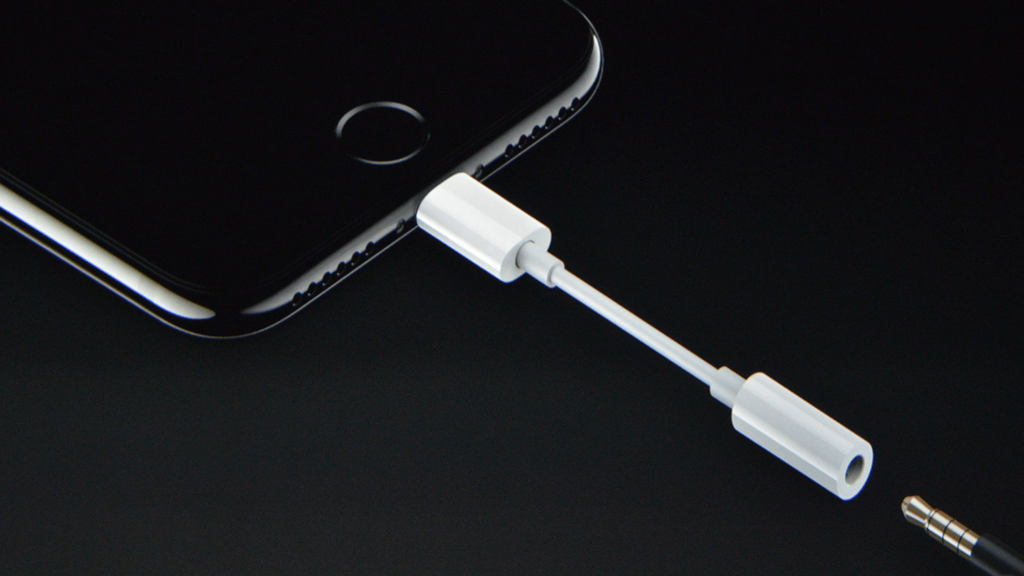"In an effort to increase the compatibility of the phone and to anticipate the choice of Apple, Kinsa has two wireless products released that work via Bluetooth and are wireless, Kinsa Smart Ear thermometer and the Sesame Street Smart Ear thermometer ", says Inder Singh, CEO of Kinsa. For the first generation smart thermometer Kinsa used the iPhone headphone jack. "We will release more wireless products in the future, including a wireless Smart Stick thermometer that are compatible with new generations of phones."
iHealth, producing glucometers which also uses a headphone jack, says she will not use the Lightning adapter, but focuses on fully wireless products in the future. The Breathometer whose original device is also connected via the headphone jack, has already developed a new device that works wireless. It will reach the market later this month, as they say.
A special case is CliniCloud, which uses the headphone jack for their stethoscope because it presents audio that is not possible via Bluetooth. The CEO of CliniCloud, Andrew Lin, said they are investigating whether it is possible to have a version connection via the Lightning adapter. "While it’s a little disappointing that Apple has dropped the universal 3.5mm jack, we have been expecting this announcement for some time, and have made preparations for lightning connectivity for our upcoming products, Our existing stethoscope should still function with the lightning to 3.5mm jack adapter, and we are awaiting samples to test for full compatibility."
In general there is a feeling of deja vu, since the change is forcing makers of health equipment towards wireless connections. Some of these devices began using the 3.5 mm plug, when Apple introduced the Lightning adapter for the first time. Then there was already predicted that the companies had to switch to wireless connections, a prediction now, only a few years later, seems to become true. The big winner in this story seems to be Bluetooth Smart.
iHealth, producing glucometers which also uses a headphone jack, says she will not use the Lightning adapter, but focuses on fully wireless products in the future. The Breathometer whose original device is also connected via the headphone jack, has already developed a new device that works wireless. It will reach the market later this month, as they say.
Only wireless
Dario other hand, the company that developed glucometers raised the suggestion in a press release sent today, that they have plans to update their devices using the Lightning adapter. "Apples news was not a surprise for us and we have been working on solving it for some time now," says Erez Raphael, CEO of Dario's Health. "The agility of our team to navigate the complex mobile ecosystem showcases the passion and versatility of Dario Health to be pioneer in cutting-edge technology in general and in particular in the diabetes market."A special case is CliniCloud, which uses the headphone jack for their stethoscope because it presents audio that is not possible via Bluetooth. The CEO of CliniCloud, Andrew Lin, said they are investigating whether it is possible to have a version connection via the Lightning adapter. "While it’s a little disappointing that Apple has dropped the universal 3.5mm jack, we have been expecting this announcement for some time, and have made preparations for lightning connectivity for our upcoming products, Our existing stethoscope should still function with the lightning to 3.5mm jack adapter, and we are awaiting samples to test for full compatibility."
Improvement for mobile devices
Apple, for its part, states that the headphone socket is old technology that needs to be replaced and that the omission makes for a thinner and more waterproof device. Critics are upset that they can not use their existing headphones without an adapter, which costs $ 159 to buy.In general there is a feeling of deja vu, since the change is forcing makers of health equipment towards wireless connections. Some of these devices began using the 3.5 mm plug, when Apple introduced the Lightning adapter for the first time. Then there was already predicted that the companies had to switch to wireless connections, a prediction now, only a few years later, seems to become true. The big winner in this story seems to be Bluetooth Smart.
